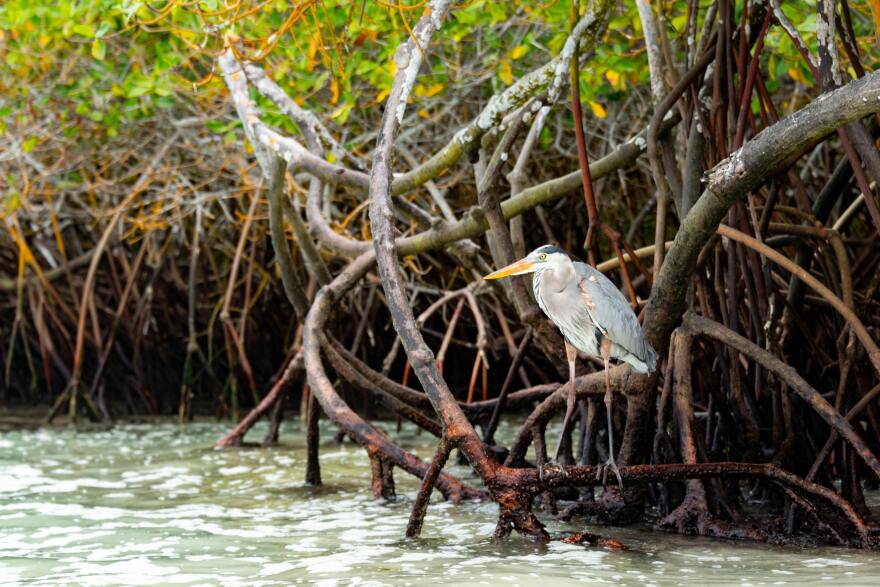A team of researchers based at the University of Central Florida’s Coastal & Estuarine Ecology Laboratory (CEELAB) will expand their work studying sustainable coastal restoration, thanks to a $100,000 grant recently awarded by the Disney Conservation Fund.
Pegasus Professor of Biology Linda Walters said UCF doctoral student Katherine Harris deserves “all the credit” for her fieldwork on how mangroves and oyster reefs interact.
“Nobody’s looked at this before, because it just was never an issue before,” Walters said.
But now, rising sea temperatures and warmer winters are reeling more and more mangrove shrubs farther north from their usual tropical climate. And those mangroves are settling on — and overtaking — oyster reefs.
“There are reefs that didn’t have any mangroves on them even five years ago, and now they’ll have one per square foot,” Walters said. “That’s a big, rapid change, and it’s all because we haven’t had hard frosts in the winter over the last twenty years.”
Mangroves provide Florida’s shoreline with valuable protection from storm surge during hurricanes, and oysters help to clean the water. Independently, Walters says, mangroves and oysters are each highly beneficial.
But “they were never designed to interact,” she said.
Since 1943, the Indian River Lagoon lost 63% of its oyster coverage, Walters said.
“What appears to be happening is the mangroves release chemicals through their roots that actually dissolve oyster shell,” Walters said.
That chemical dynamic is one key element the Disney grant will help CEELAB to continue researching, Walters said. Another area is CEELAB’s testing of biodegradable, non-plastic materials that could replace the microplastics typically used in coastal restoration efforts.
Microplastics can poison or kill birds if the birds ingest them, according to a UCF study Walters previously co-authored. That 2020 study was the first to confirm and quantify microplastics found in Florida birds like hawks, ospreys and owls.
The Disney grant will also bolster researchers’ ongoing efforts to engage and educate community members on coastal restoration methods, including by adding a virtual reality component to the team’s restoration events.
Walters said the project’s focus is “to have the community involved in the entire restoration process, from making the materials that you’re deploying, to deploying them, to monitoring them.”
To date, more than 67,000 people have volunteered with the CEELAB team on various projects, Walters said.
Copyright 2023 WMFE. To see more, visit WMFE. 9(MDA4MzM1MjM1MDEzMTg5NTk0MzNmOTQ5MA004))

